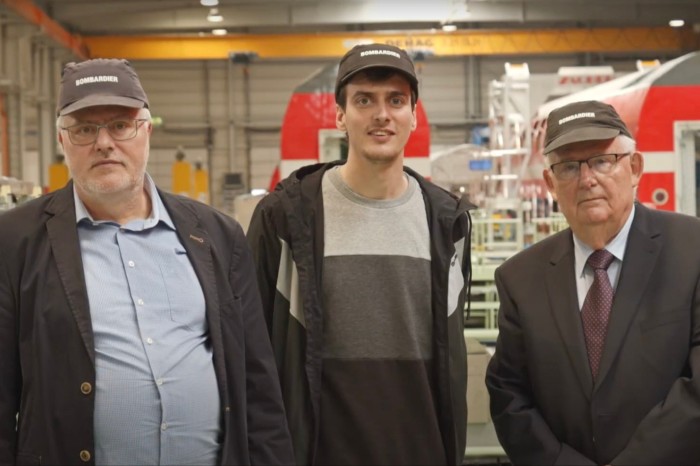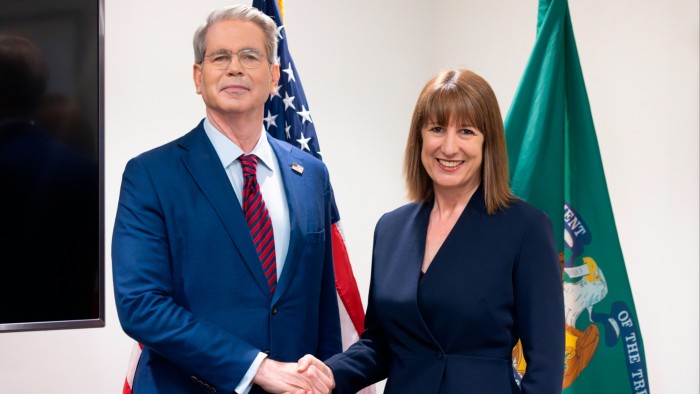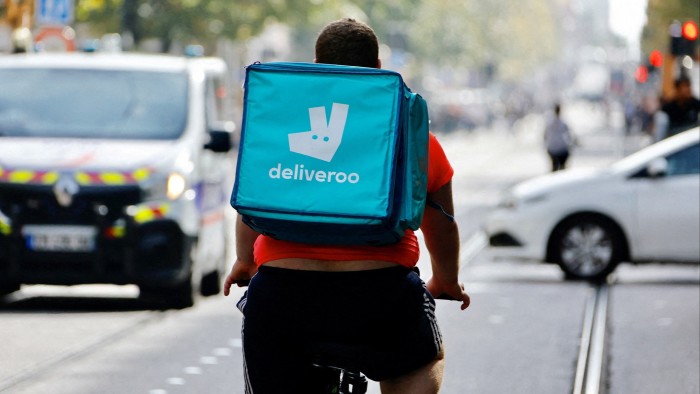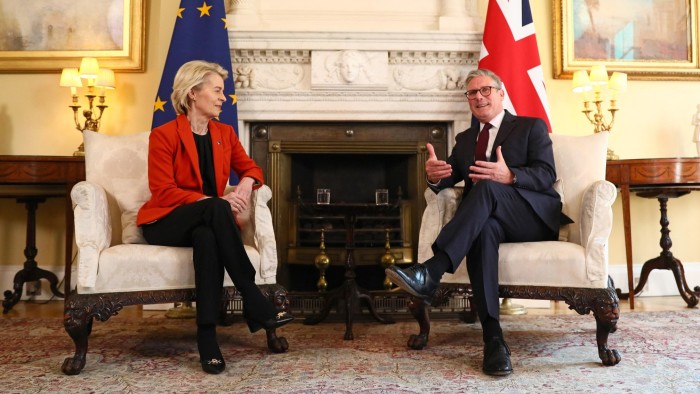From trains to tanks: Germany’s rearmament marks industrial shift

For three generations, the Liebigs have made a living building double-decker railcars in the easternmost German town of Görlitz. But those who come after Carsten Liebig will now build weapons, not trains.
Starting next year, Görlitz’s 176-year-old train factory will start producing components for Leopard II main battle tanks and Puma infantry fighting vehicles after defence contractor KNDS stepped in late last year to take over the site that train maker Alstom had decided to shut down.
Like many manufacturers in Western Europe, Alstom shut down the plant as part of a broader push to cut costs by shifting production to lower-wage countries.
Liebig said that while he hoped the deal would improve the chances of his former colleagues keeping their jobs — KNDS has pledged to retain around 350 of the plant’s 700 employees — he mourned the loss of an industry that had shaped his home town’s identity.
“What’s very sad for me personally, deeply sad, is that we still need arms production,” said Liebig, who retired in 2021 from a lifetime of making trains and trams that carry passengers in countries such as Germany and Israel.
The Liebigs are not unique — across Germany, families have grown accustomed to watching businesses in automotive, mechanical engineering, and chemical industries falter, taking well-paid jobs that have supported generations with them.
Output at Germany’s most energy-intensive sectors has fallen by 20 per cent compared with 2021 — the year before Russia invaded Ukraine and Germany lost access to cheap gas.
For many Germans living in the former communist East, the current malaise marks the second wave of deindustrialisation they have experienced since the reunification of the country in 1990.
That is why Germany’s historic rearmament is now offering a rare glimmer of hope in a country where nearly a quarter of a million manufacturing jobs have disappeared since the onset of the pandemic.
Octavian Ursu, the mayor of Görlitz, said other towns could soon undergo the kind of industrial transition currently taking place in his constituency. “As large investments flow into rearmament, it is likely that these kinds of changes to industrial sites will continue to take place,” he said.
German defence spending has surged by almost 80 per cent since 2020, reaching over €90bn last year, according to Nato estimates, and Berlin’s rearmament push is only set to intensify competition among arms makers for skilled labour.

Rheinmetall, Diehl Defence, Thyssenkrupp Marine Systems and MBDA — four defence contractors with a large presence in Germany — have, over the past three years, together added more than 16,500 employees, an increase of more than 40 per cent. They plan to hire roughly 12,000 more by 2026, they told the Financial Times.
At a ceremony held to mark the handover at the Görlitz plant in February, KNDS’ chief operating officer Florian Hohenwarter said the tank maker had picked the plant as it already had “precisely the highly trained specialists we need to produce the highest-quality components for our vehicles” referring mainly to skilled welders.
“Finding and training the right people” will be a key challenge for defence contractors looking to scale, said Bank of America analyst Benjamin Heelan. An increasing number of companies had started targeting workers from shrinking industries such as automotive, “bringing them in, retraining them and repurposing them”, he said.
Lucrative government contracts have prompted listed arms companies to significantly boost shareholder payouts. Rheinmetall plans to raise its dividend by 42 per cent this year, Hensoldt by 25 per cent, and tank gearbox maker Renk by 40 per cent — moves that are likely to fuel pressure to reinvest in local economies.
“If we’re now using German taxpayers’ money for security, then jobs must also be created in Germany,” Rheinmetall chief executive Armin Papperger said last month, as he revealed the company’s interest in potentially taking over redundant automotive plants.

Last month, Papperger and a delegation from Rheinmetall visited a soon-to-be-idled Volkswagen factory in Osnabrück in north-west Germany, amid talks of a potential takeover. The munitions and tank maker is racing to expand production capacity to meet an order backlog worth €55bn, just as the carmaker plans to halve its manufacturing output.
Rheinmetall, together with radar and sensor maker Hensoldt, has also pledged to take on around three hundred laid-off workers from Continental and Bosch — two of Germany’s largest car suppliers.
The defence groups’ announcements, however, represent a small fraction of the tens of thousands of automotive job cuts, as Europe’s carmakers prepare for terminally lower sales. So far, only one Continental employee has been transferred to a Rheinmetall plant, with the moves dependent on voluntary applications by automotive workers.
Just how enthusiastic Germans are about joining Berlin’s rearmament push, including its military support for Ukraine — whether by enlisting as soldiers or building tanks — remains far from clear.

Görlitz made headlines in 2019 when the town came close to electing Germany’s first Alternative for Germany (AfD) mayor — a move ultimately blocked as other parties urged voters to rally behind the Christian Democrats’ Ursu.
But in last year’s local elections, the vote share of the AfD — an anti-immigrant party that opposes German involvement in the war in Ukraine — surged to 37 per cent, and nearly half of all ballots cast in Görlitz went to parties opposed to Germany’s military support for Ukraine.
Sebastian Wippel, who narrowly missed becoming the AfD’s first mayor in Görlitz in 2019, said Germany’s military needed tanks, but questioned where else the weapons produced in town might end up.
“Are the tanks being built here going to be sold or donated directly to Ukraine? That, of course, would not be good,” he said. The defence industry, he added, “must not become a means of gearing up for war, or of putting politicians in a position where they end up talking themselves into a conflict.”

Nevertheless, Michael Kretschmer, prime minister of the German state of Saxony and a long standing opponent of weapons deliveries to Ukraine, welcomed tank production in Görlitz — where he was born.
“The technologies that will be manufactured in Görlitz in the future will serve to protect Europe. This is an enormous opportunity for the city — and for good, secure jobs,” he said.
KNDS, which did not respond to multiple requests for comment, has made no public commitments about its long-term plans for the plant.
Axel Drescher, an organiser for IG Metall, said the union welcomed the preservation of jobs but questioned how long the defence sector’s expansion could last — unless, he noted, tanks and munitions continued to be consumed in war.
“Will tank manufacturing be a sustainable job? Hopefully not. Hopefully, the wars will end soon,” he said.
Liebig, however, took a more pragmatic view of the changes taking place in his home town. “Unfortunately, that’s just how it is,” he said. “The world moves on — all we can do is hope that as many jobs as possible will stay on.”




